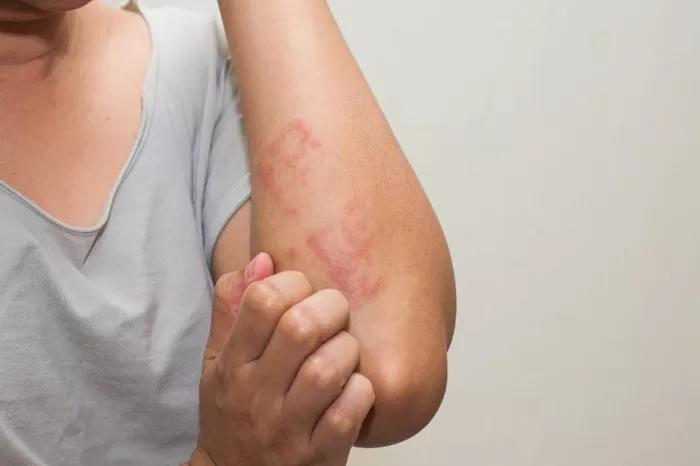Antisocial Personality Disorder, commonly abbreviated as ASPD, is a complex and often misunderstood mental health condition. When people hear “antisocial,” they sometimes think it means simply being shy or avoiding social situations. However, in medical terms, ASPD refers to a much more serious and specific pattern of behavior. It involves persistent disregard for the rights of others, impulsivity, and a lack of empathy. This condition can have profound effects on an individual’s life and those around them, often leading to difficulties in relationships, work, and society as a whole. In this article, we will explore what ASPD really means in medical terms, its symptoms, causes, diagnosis, and treatment options. We aim to provide a vivid and detailed introduction to this disorder, breaking down the complex ideas into clear and understandable parts.
Understanding ASPD is important not only for those who have it but also for their families, friends, and communities. Because the behaviors linked to ASPD can sometimes be harmful or disruptive, gaining insight into the disorder can lead to better management and support. Moreover, distinguishing ASPD from other personality disorders or mental health conditions is crucial for correct diagnosis and treatment. As we proceed, you will see why ASPD is classified as a personality disorder and what sets it apart in the field of psychiatry.
What Does ASPD Mean in Medical Terms?
In medical and psychiatric language, ASPD stands for Antisocial Personality Disorder. It is a type of personality disorder characterized by a long-term pattern of manipulating, exploiting, or violating the rights of others without remorse or guilt. The American Psychiatric Association’s Diagnostic and Statistical Manual of Mental Disorders (DSM-5), which is widely used by clinicians to diagnose mental health conditions, outlines specific criteria to diagnose ASPD.
A key feature of ASPD is a consistent disregard for social norms and laws. Individuals with this disorder often show behaviors such as deceitfulness, impulsivity, irritability, aggression, and irresponsibility. They may repeatedly lie, use aliases, or con others for personal profit or pleasure. They may also be reckless and fail to plan ahead, showing little concern for their own safety or the safety of others. This behavior pattern typically begins in childhood or early adolescence and continues into adulthood.
Medical professionals distinguish ASPD from other disorders by the persistence and severity of these behaviors. Not every person who acts irresponsibly or breaks rules has ASPD. The diagnosis requires a pervasive pattern of antisocial behavior that affects many areas of life. Importantly, individuals with ASPD often lack remorse or guilt for their actions, which is a hallmark symptom that separates the disorder from other mental illnesses.
The Symptoms and Behavioral Signs of ASPD
People with ASPD display a range of symptoms that revolve around antisocial and often harmful behavior. These symptoms usually appear by the age of 15 but are diagnosed in adulthood when the full pattern of personality traits becomes clear. Some of the most common symptoms include a failure to conform to social norms, such as repeatedly engaging in unlawful acts or ignoring the rights of others.
Another prominent symptom is deceitfulness. Individuals may lie frequently, use false identities, or manipulate others for personal gain or pleasure. Impulsivity is also common; they may act without thinking about consequences, leading to sudden job changes, unstable relationships, or risky behaviors like substance abuse or reckless driving.
Aggressiveness and irritability often result in physical fights or assaults. This can make it difficult for people with ASPD to maintain steady employment or relationships. Irresponsibility is another key feature, showing up as repeated failure to honor financial obligations, neglect of family duties, or an inability to hold down a job.
Perhaps the most troubling aspect of ASPD is the lack of remorse. Even when their actions hurt others, individuals with this disorder rarely feel guilt or make efforts to repair the damage. This lack of empathy can cause deep problems in social and family life.
Causes of ASPD: Biology, Environment, and Childhood
The exact causes of ASPD remain complex and not fully understood, but experts agree it is the result of a combination of biological, psychological, and environmental factors. Genetics appear to play a significant role, as ASPD often runs in families. Studies suggest that inherited traits related to impulsivity, aggression, and emotional regulation may increase risk.
Brain structure and function differences have also been observed in people with ASPD. For example, areas of the brain involved in impulse control, decision-making, and emotion regulation, such as the prefrontal cortex and amygdala, may function differently or show reduced activity. These neurological differences can help explain why individuals with ASPD struggle with self-control and empathy.
Environmental factors are equally important. Childhood experiences such as abuse, neglect, unstable family environments, or exposure to violence strongly contribute to the development of ASPD. Children who grow up in harmful or chaotic conditions may learn antisocial behaviors as coping mechanisms or survival strategies. Early behavioral problems such as conduct disorder—a condition marked by aggressive and rule-breaking behaviors in childhood—often precede ASPD in adulthood.
Understanding the mix of these factors helps explain why ASPD is not caused by a single event but rather develops over time through a complex interplay of genes, brain function, and life experiences.
How Is ASPD Diagnosed?
Diagnosing ASPD requires a thorough evaluation by a mental health professional. The process usually includes detailed interviews, clinical observations, and reviewing the patient’s history of behavior. According to the DSM-5 criteria, several specific conditions must be met to confirm the diagnosis.
Firstly, the person must be at least 18 years old, but evidence of conduct disorder before age 15 is necessary. The diagnosis focuses on a persistent pattern of antisocial behavior and disregard for the rights of others, lasting for years. Clinicians look for behaviors such as repeated law-breaking, deceitfulness, impulsivity, aggressiveness, reckless disregard for safety, consistent irresponsibility, and lack of remorse.
Other mental health conditions must be ruled out, especially psychotic disorders or mood disorders, as some symptoms may overlap. The diagnosis also requires that these behaviors are not caused by substance abuse or medical conditions.
It can be challenging to diagnose ASPD because individuals with the disorder may be unwilling or unable to recognize their problems or seek help. Sometimes, diagnosis occurs when they come into contact with the criminal justice system or during treatment for substance abuse or other related conditions.
Treatment and Management of ASPD
Treating ASPD is notoriously difficult. Because individuals with this disorder often lack insight into their behavior and show little remorse, they may not be motivated to seek treatment. Moreover, there is no single medication that cures ASPD. Instead, treatment focuses on managing symptoms and reducing harmful behaviors.
Psychotherapy, especially cognitive behavioral therapy (CBT), is a common approach. Therapy can help individuals recognize harmful thought patterns, develop better coping strategies, and improve interpersonal skills. However, success requires the patient’s willingness to participate and engage in the process.
Medications may be used to treat symptoms associated with ASPD, such as irritability, aggression, or co-occurring conditions like depression or anxiety. These can include mood stabilizers, antipsychotics, or antidepressants. However, medications do not address the core antisocial behaviors directly.
Because ASPD can lead to legal problems or substance abuse, treatment often involves multiple professionals, including psychiatrists, psychologists, social workers, and sometimes legal advisors. Support from family and community resources can also play a vital role in managing the disorder.
The Social Impact of ASPD
ASPD affects not only the individual but also their families and society at large. The behaviors linked to the disorder, such as manipulation, aggression, and disregard for laws, can cause significant distress in relationships and communities. People with ASPD often struggle to maintain stable jobs, friendships, or romantic relationships.
Families of those with ASPD may experience emotional pain, financial strain, and a sense of helplessness. Children raised by parents with ASPD are also at increased risk for emotional and behavioral problems, perpetuating a cycle.
From a societal perspective, ASPD is associated with increased rates of criminal behavior and incarceration. Many individuals with ASPD come into contact with the justice system, which often lacks adequate resources for mental health treatment. This leads to repeated cycles of punishment without addressing the underlying disorder.
Raising awareness and improving access to mental health care for people with ASPD are essential steps to reduce its negative social impact.
Conclusion
Antisocial Personality Disorder, or ASPD, is a serious mental health condition defined by a long-term pattern of behavior that violates social norms and the rights of others. It is characterized by impulsivity, deceitfulness, aggression, irresponsibility, and a striking lack of remorse. ASPD develops due to a combination of genetic, neurological, psychological, and environmental factors that interact over time.
Diagnosing ASPD requires careful evaluation, and treatment is challenging but possible with a combination of psychotherapy and medication. The disorder has profound effects on individuals and society, highlighting the need for better understanding and support.
If you or someone you know may be affected by ASPD, professional help is crucial. Early intervention and ongoing management can improve outcomes and reduce harm, allowing individuals to lead more stable and healthier lives.
If you want, I can provide information on how to support someone with ASPD or discuss related personality disorders. Would you like me to continue?
Related Topics



































